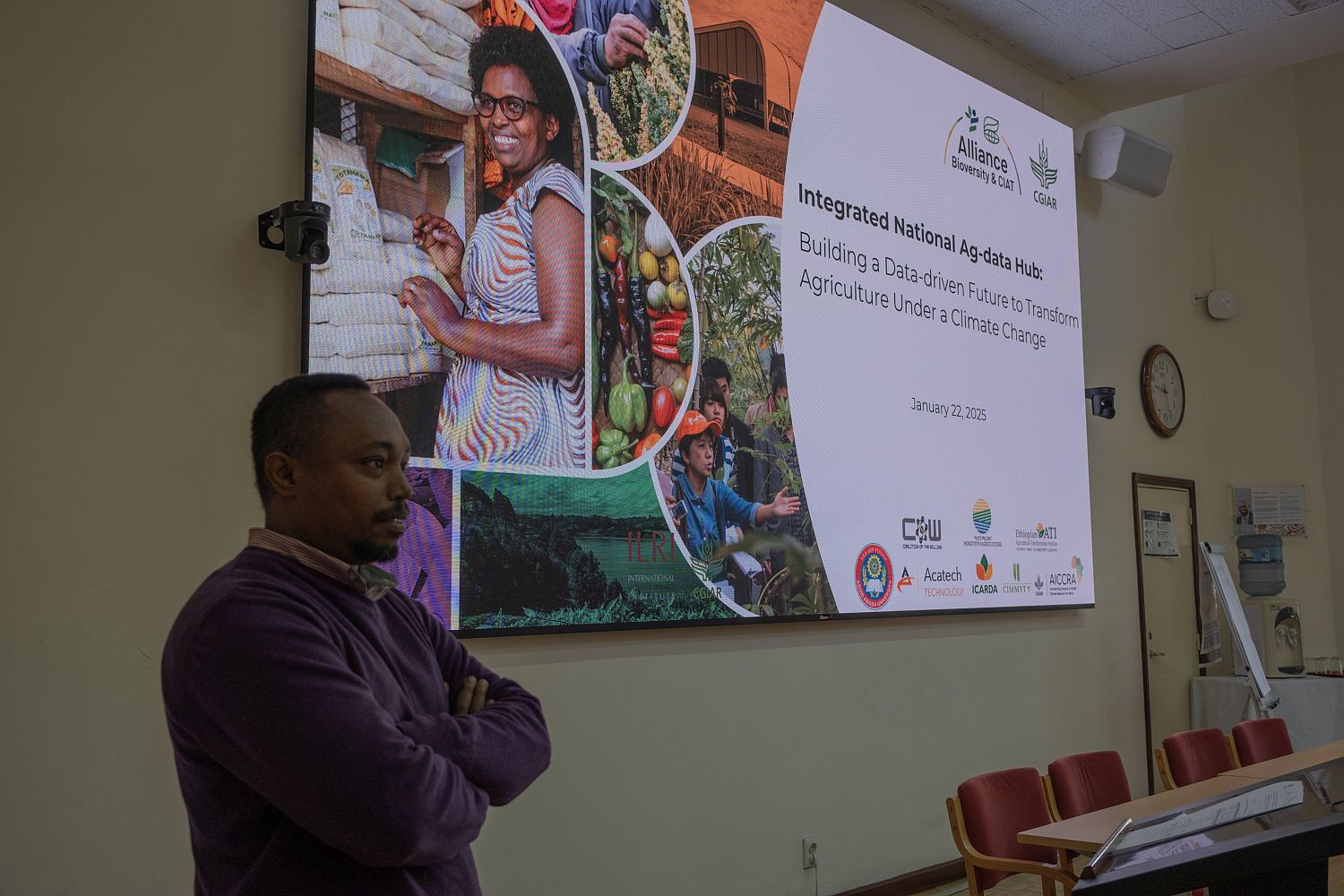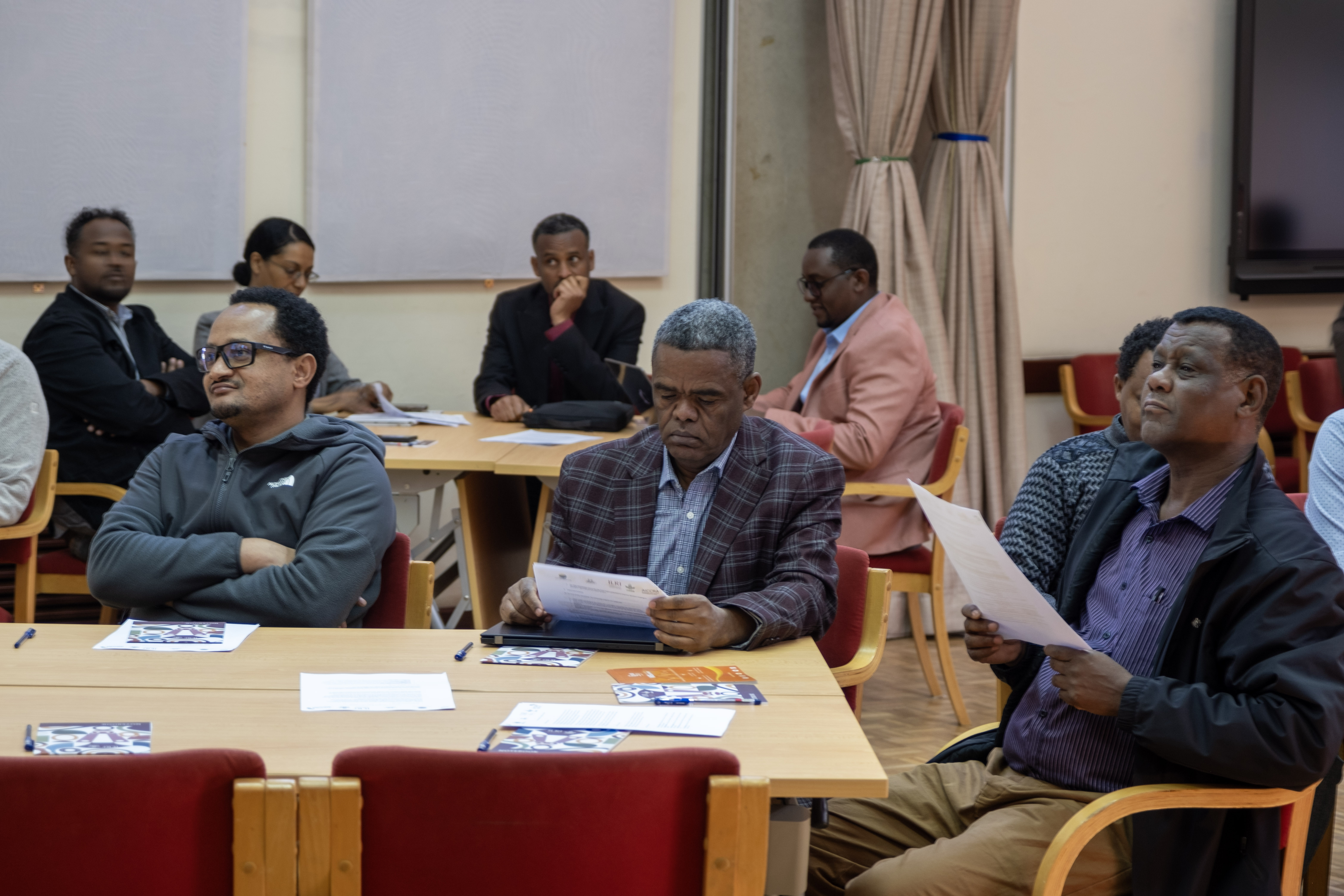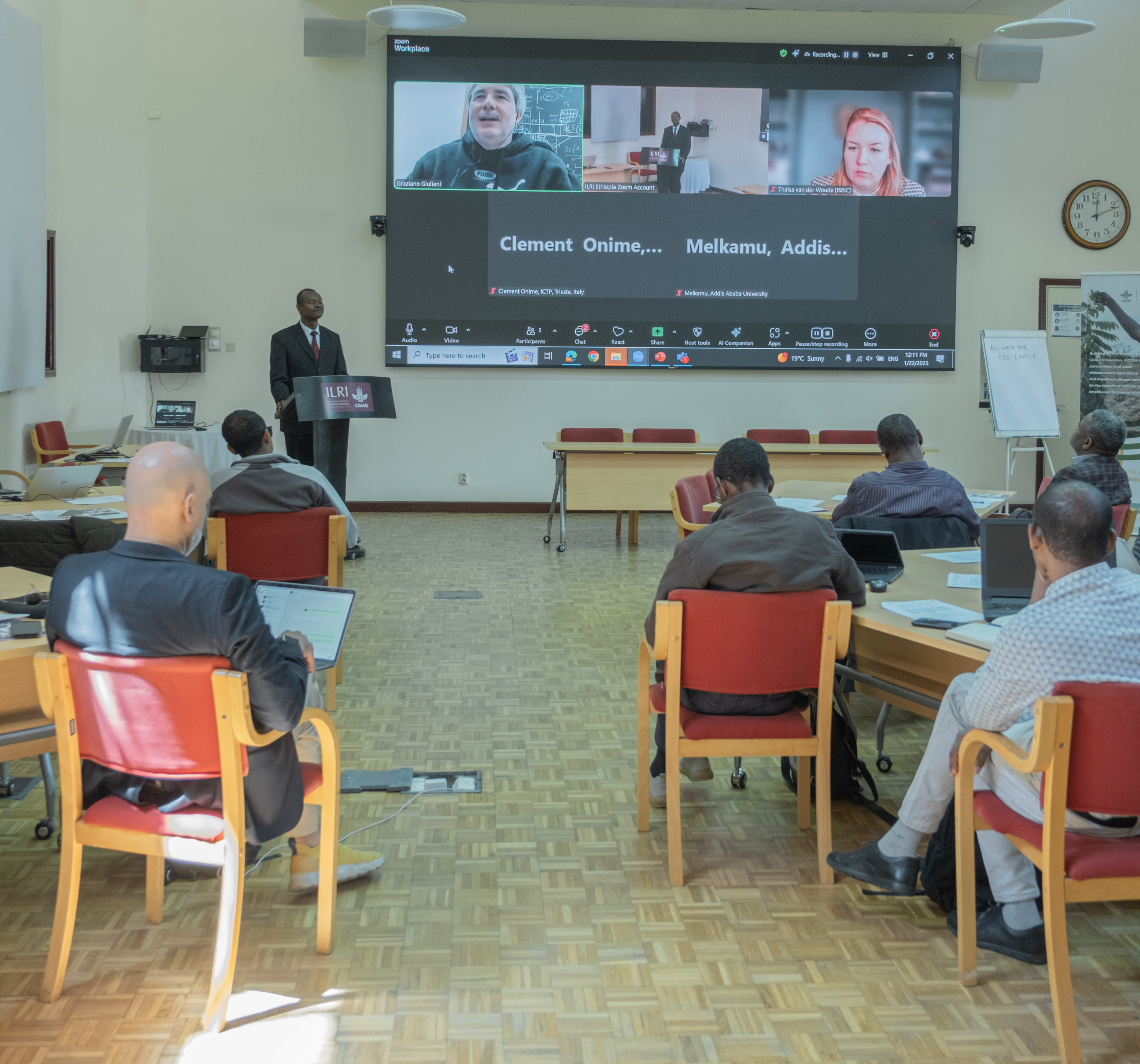Ethiopia's Ag-Data Hub technical expert consultation workshop: A step toward transforming agriculture through data innovation
Date: January 22, 2025 Author: John Recha (ILRI)
On 22 January 2025, representatives from various organisations convened in Addis Ababa for the technical expert consultation workshop of Ethiopia’s National Agricultural Data Hub. The purpose of the workshop was to test, refine, and prepare for the official rollout of this innovative platform.

Participants
With a population of 130 million and a thriving agricultural sector, Ethiopia is well-positioned to lead agricultural innovation in East Africa. Data-driven solutions have become indispensable in addressing challenges such as food security, productivity, and climate resilience. Recognising this pressing need, Ethiopia’s National Agricultural Data Hub (Ag-Data Hub) aims to provide a centralised platform to collect, process, and share reliable agricultural data in real-time.
Designed to equip stakeholders—from farmers to policymakers—with actionable insights on weather patterns, soil health, market trends, and more, the platform will play a crucial role in shaping sustainable agricultural growth and strengthening food systems across the country.
The enhanced Ethiopia Ag-Data Hub is set to improve data harvesting, curation, and access to legacy databases and external sources. A key priority is ensuring seamless integration and data exchange between systems involved in agricultural data production. As part of this effort, the LSC-Hub is being aligned with Ethiopia’s broader data ecosystem, particularly within the Ethiopian Institute of Agricultural Research (EIAR). Instead of directly submitting data to the national hub, EIAR’s legacy databases will first undergo processing and consolidation through a structured data ecosystem, ensuring harmonised, high-quality data ready for public access and integration with national-level platforms.
By facilitating this structured data flow, the LSC-Hub plays a crucial role in enhancing Ethiopia’s agricultural data landscape. It supports evidence-based climate-smart agriculture, promotes interoperability between research institutions, and strengthens data accessibility —advancing food and nutritional security across the country

Presentation during technical expert consultation workshop.
Objectives of the workshop
The Ag-Data Hub technical expert consultation workshop brought together key stakeholders, including government officials, representatives from research institutions, international organisations, and the private sector. The workshop served as a collaborative effort to ensure the Ag-Data Hub’s readiness for deployment. The specific objectives were to:
- Test the platform’s ability to collect, process, and disseminate data effectively.
- Engage stakeholders in discussions about usability, accessibility, and data integration.
- Validate the integration of diverse data sources such as weather, soil, and market data.
- Identify technical issues and gather feedback for improvement.
- Foster partnerships among agricultural data providers, developers, and users.
Key activities and approach
The day’s activities were structured to maximise engagement and foster collaboration:
- Introduction to the Ag-Data Hub: The development team provided an overview of the platform’s features, objectives, and potential impact.
- Technical demonstration: A hands-on session showcased how the platform functions, from data collection to dissemination.
- Group sessions: Stakeholders engaged in focused discussions, offering valuable feedback on user experience and data relevance.
- Plenary sessions: Experts discussed the critical role of data in transforming agriculture, shared challenges, and proposed solutions for refining the platform.
- Next steps: The day concluded with a roadmap outlining improvements and actions before the official launch.
Expected outcomes
The workshop aimed to achieve the following:
- A comprehensive understanding of the platform’s strengths and areas for improvement.
- A list of actionable recommendations to address technical and functional gaps.
- Strengthened collaboration and support from key stakeholders.
- Increased awareness of how integrated datasets can support decision-making in Ethiopia.
- Enhanced partnerships among government, private sector, and development organisations.

Workshop's participants.
Participants and stakeholders
The workshop was co-organised by several key partners, including:
- The Ethiopian Institute of Agricultural Research (EIAR)
- Ethiopia’s Ministry of Agriculture (MoA)
- The International Livestock Research Institute (ILRI)
- The Alliance of Bioversity International and CIAT
- The DeSIRA Land, Soil, and Crop Information Services project
- Accelerating Impacts of CGIAR Climate Research for Africa (AICCRA)
- ACATECH Technology PLC
Additionally, representatives from the International Centre for Theoretical Physics and ISRIC - World Soil Information participated virtually.

Presentation.
The workshop brought together a diverse group of participants, including representatives from:
- Government institutions such as the Ministry of Agriculture, the Ethiopian Institute of Agricultural Research, the Ethiopian Meteorological Institute, the Ethiopian Statistical Agency, the Space Science and Geospatial Institute,
- Development partners and NGOs working on agricultural data systems.
- Private sector entities, including agribusinesses and tech firms from Spain and New Zealand.
- International and regional climate and data centres, such as ICPAC.
- Academia and research institutions specialising in agricultural innovation, including Addis Ababa University.
- The LSC-Hubs project partner from the Kenya Agricultural and Livestock Research Organisation (KALRO).
Way forward
The technical expert consultation workshop for the Ag-Data Hub marked a pivotal step toward revolutionising Ethiopia’s agricultural sector through data innovation. The active participation of stakeholders and their invaluable feedback have laid a strong foundation for the platform’s official launch.
As Ethiopia continues to position itself as a leader in agricultural technology, the Ag-Data Hub is poised to be a transformative tool for achieving sustainable agricultural growth, enhancing food security, and supporting decision-makers with real-time insights.
The next steps will involve addressing the feedback gathered during the workshop, refining the platform, and preparing for its full-scale deployment in the coming months. Additionally, the feedback gathered will also be used to enhance the Kenya Digital Agriculture Platform, which is being developed by KALRO.
Stay tuned for more updates on this exciting journey!
Share